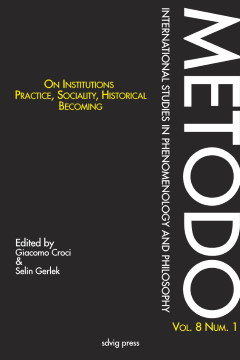Making out sense of the social world
in search of a cognitive basis for shared institutions
pp. 105-134
Abstract
Institutions represent a solid basis to organize and stabilize human life in diferent social contexts. They are external events in the world, but they also have a strong anchorage in the mind and in last years many scholars tried to explore their cognitive ground. Starting from the original attempt of Douglass C. North, who at the end of his career tried to establish a program called “Cognitive Institutionalism”, we discuss the merits and the limits of this approach. First, we show that his statements are cognitively onerous as they imply the notions of mental models and beliefs. Instead, we argue that shared institutions do not require such a convergence and that coordination takes place in the form of social practices and habits. Second, we clarify some aspects of North’s cognitive theory avoiding the ontological reading, i.e. explaining in what sense institutions might depend on the human mind and how people are joined into a practice made possible via institutions.
Publication details
Published in:
Croci Giacomo, Gerlek Selin (2020) On institutions. Metodo 8 (1).
Pages: 105-134
Full citation:
Giovagnoli Raffaela, Marchetti Jacopo (2020) „Making out sense of the social world: in search of a cognitive basis for shared institutions“. Metodo 8 (1), 105–134.


